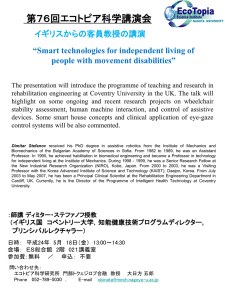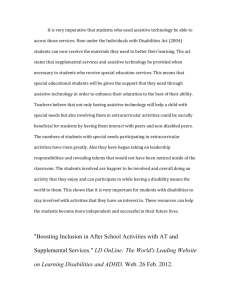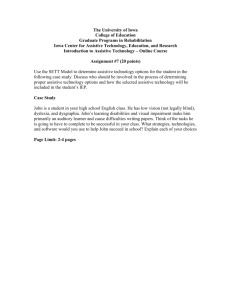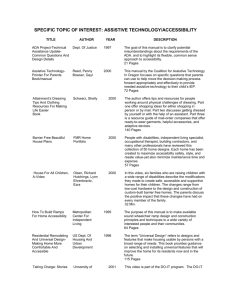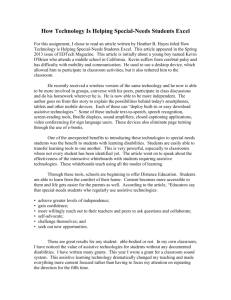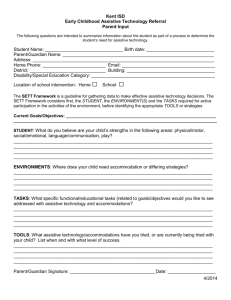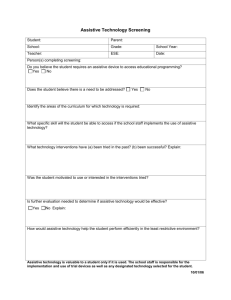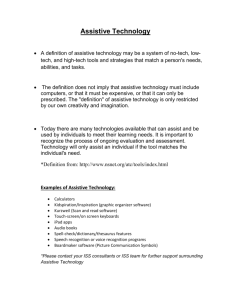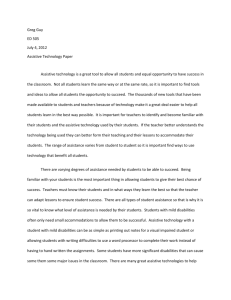Policy Considerations: Assistive Technology Law and Policy
advertisement
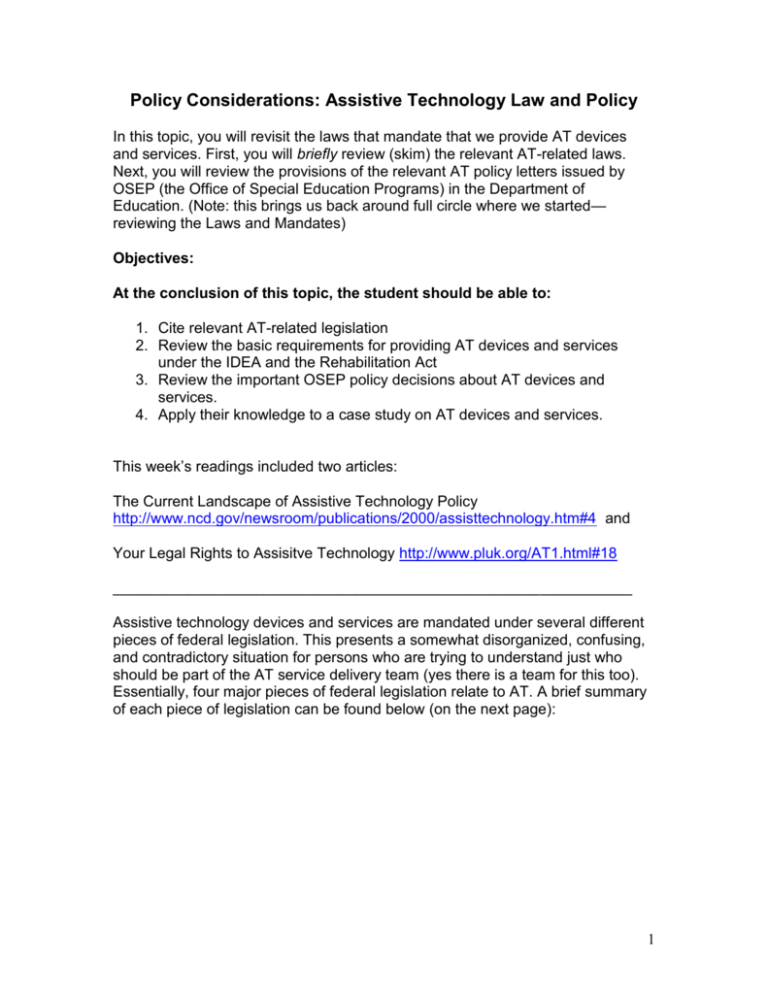
Policy Considerations: Assistive Technology Law and Policy In this topic, you will revisit the laws that mandate that we provide AT devices and services. First, you will briefly review (skim) the relevant AT-related laws. Next, you will review the provisions of the relevant AT policy letters issued by OSEP (the Office of Special Education Programs) in the Department of Education. (Note: this brings us back around full circle where we started— reviewing the Laws and Mandates) Objectives: At the conclusion of this topic, the student should be able to: 1. Cite relevant AT-related legislation 2. Review the basic requirements for providing AT devices and services under the IDEA and the Rehabilitation Act 3. Review the important OSEP policy decisions about AT devices and services. 4. Apply their knowledge to a case study on AT devices and services. This week’s readings included two articles: The Current Landscape of Assistive Technology Policy http://www.ncd.gov/newsroom/publications/2000/assisttechnology.htm#4 and Your Legal Rights to Assisitve Technology http://www.pluk.org/AT1.html#18 ______________________________________________________________ Assistive technology devices and services are mandated under several different pieces of federal legislation. This presents a somewhat disorganized, confusing, and contradictory situation for persons who are trying to understand just who should be part of the AT service delivery team (yes there is a team for this too). Essentially, four major pieces of federal legislation relate to AT. A brief summary of each piece of legislation can be found below (on the next page): 1 AT-Related Laws. [The Americans with Disabilities Act] [The Individuals with Disabilities Education Act (IDEA)] [The Rehabilitation Act] [The Technology-Related Assistance Act] Specific Service Provisions in AT-Related Laws Beyond the basic provisions of the individual laws (listed above), there are a host of very specific service provisions (devices and services) about AT in two of these laws: the IDEA and the Rehabilitation Act. As you saw earlier---IDEA serves children attending public schools. The Rehabilitation Act, on the other hand serves students transitioning from school (generally 16 and above) into a post secondary school, work setting, or independent living setting. The following sites (and sub-sites) give you detailed information about what specific AT services are required under each law. While many seem dated—they are still used as a resource. Individuals with Disabilities Education Act 2 Assistive Technology Device & Comments Technology Act of 1998 AT Policy Decisions - OSEP Letters In addition to the text of the legislation, the Office of Special Education Programs (OSEP) which oversees the implementation of IDEA, has offered several policy letters that further clarify the roles of schools in providing AT services. These are well summarized in the following documents: A Summary of OSEP Policy Letters on AT Scharag Letter on assistive technology 3
